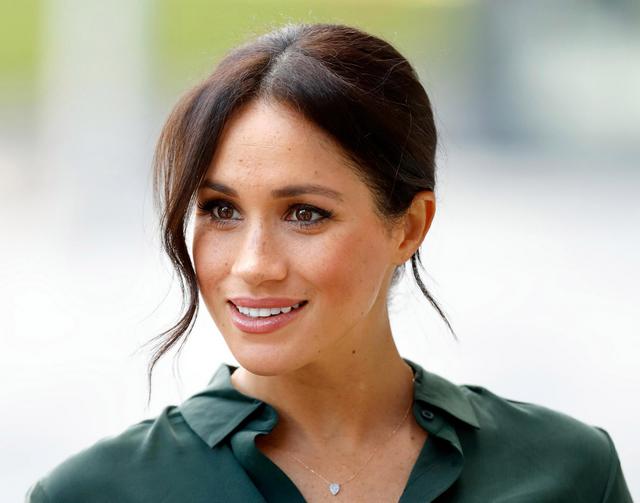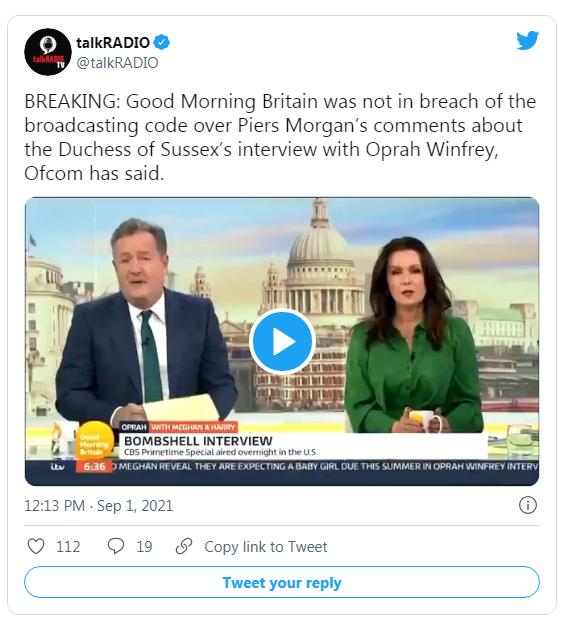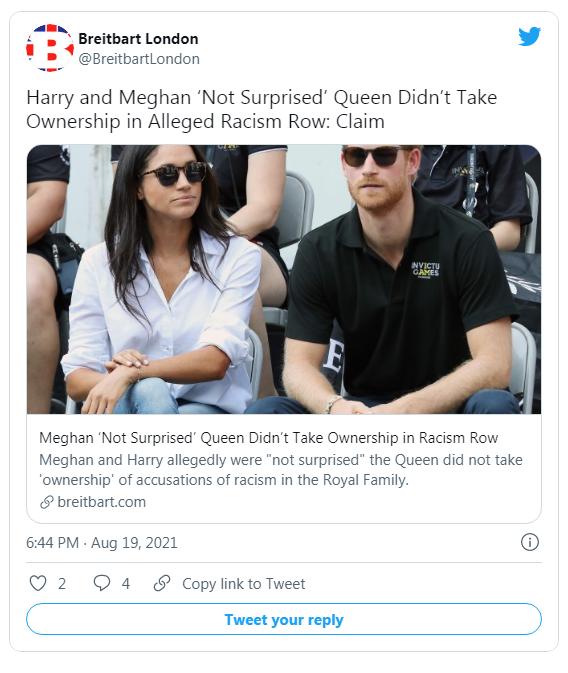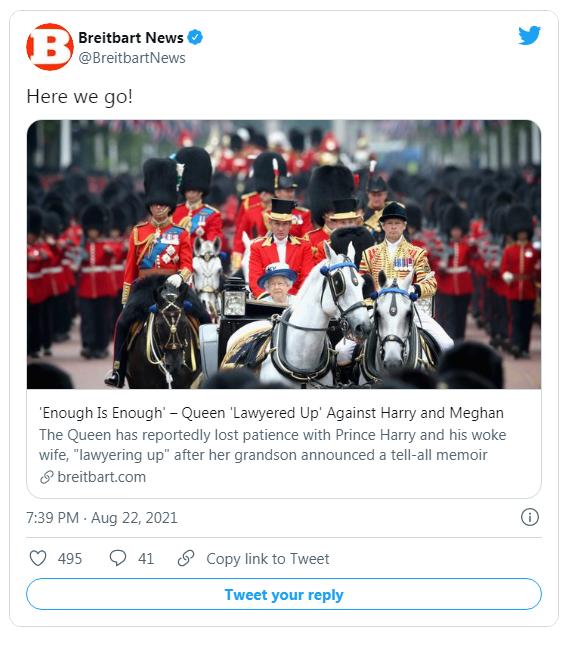


‘Victory for Free Speech’: Piers Morgan Cleared over Criticising ‘Princess Pinocchio’ Meghan Markle

By VICTORIA FRIEDMAN
Nigel Farage has hailed as a “victory for free speech” the British broadcasting regulator clearing TV show host Piers Morgan for criticising Meghan Markle and saying he did not believe the Duchess of Sussex was telling the truth when she accused the Royal Family of neglecting her mental health and that a family member was racist.
Meghan had made the claims during a bombshell interview in March with Oprah Winfrey, accompanied by her husband Prince Harry.
Responding to the allegations, Piers Morgan, then-host of ITV breakfast show Good Morning Britain, criticized the Woke Royals for making such personal and outrageous claims against their family while Queen Elizabeth’s husband Prince Philip was ill in hospital.
Morgan later resigned, but the episode sparked 58,000 complaints, prompting an investigation by the broadcasting watchdog Ofcom.

On Wednesday morning, Ofcom announced that it had rejected the complaints against ITV, saying, according to the BBC: “Consistent with freedom of expression, Mr Morgan was entitled to say he disbelieved the Duke and Duchess of Sussex’s allegations and to hold and express strong views that rigorously challenged their account.
“The [Ofcom broadcasting] code allows for individuals to express strongly held and robustly argued views, including those that are potentially harmful or highly offensive, and for broadcasters to include these in their programming.
“The restriction of such views would, in our view, be an unwarranted and chilling restriction on freedom of expression both of the broadcaster and the audience.”
The day after the interview, Morgan had said of the Duchess’s claims that she felt suicidal: “Who did you go to? What did they say to you? I’m sorry, I don’t believe a word she said, Meghan Markle. I wouldn’t believe it if she read me the weather report. The fact that she’s fired up this onslaught against our Royal family I think is contemptible.”
Brexit leader Nigel Farage said of the ruling on Wednesday: “Well done Ofcom for not bending to the mob. A victory for free speech.”
Writing for the Daily Mail, Morgan likewise said that “Ofcom’s vindication of me is a resounding victory for freedom of speech and a resounding defeat for Princess Pinocchios who think we should all be compelled to believe every fork-tongued word they say”.

One of the allegations that Morgan pointed to in his article, though perhaps less incendiary but categorically disproved, was that Meghan and Harry had been married in their garden, privately with no witnesses, by the Archbishop of Canterbury three days before they were married (again) in Westminster Abbey.
Meghan had told Winfrey: “You know, three days before our wedding, we got married.
“No-one knows that. But we just called the Archbishop [of Canterbury, Justin Welby], and we said, ‘Look. This thing. This spectacle is for the world, but we want our union between us’.”
Prince Harry backed his wife’s claims, saying it was “just the three of us”.
The allegations provoked members of the Church of England and other Anglicans to question the claim, given that, as social commentator, Christian, and broadcaster Calvin Robinson pointed out, weddings require two witnesses, ceremonies require a licensed and covered venue, and you cannot be married twice — even to the same person.

“What Meghan describes would have been illegal. The interview starts with a lie, why should we trust anything she says from this point on?” Mr Robinson had said at the time.
Weeks later Archbishop Welby was put in the unusual position of having to deny such allegations made by the couple, which Meghan and Harry were also forced to admit were not true.
The chief cleric of the worldwide Anglican Communion was not the only senior figure in Britain’s institutions finding themselves having to defend those institutions against the Duke and Duchess’s extraordinary claims.
Prince William, second in line to the throne, responded to the media days after the Winfrey interview that “we are very much not a racist family.”
While Queen Elizabeth II issued a statement saying in relation to the alleged conversations that “some recollections may vary” — appearing to be the Monarch suggesting Harry and Meghan were either misremembering, or even lying.
